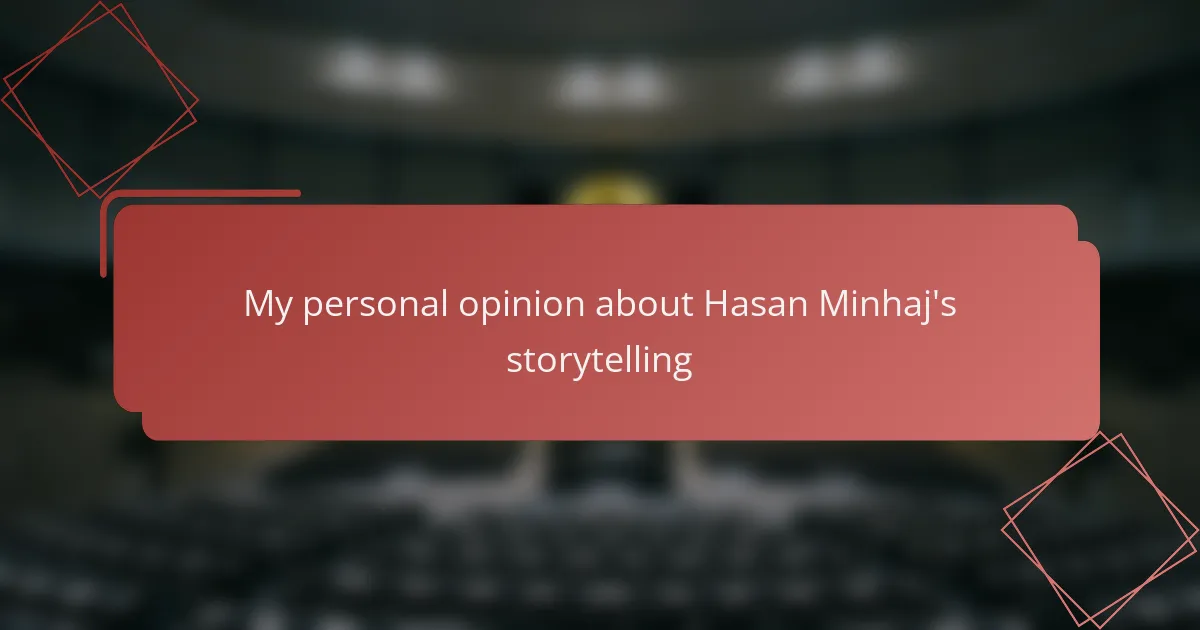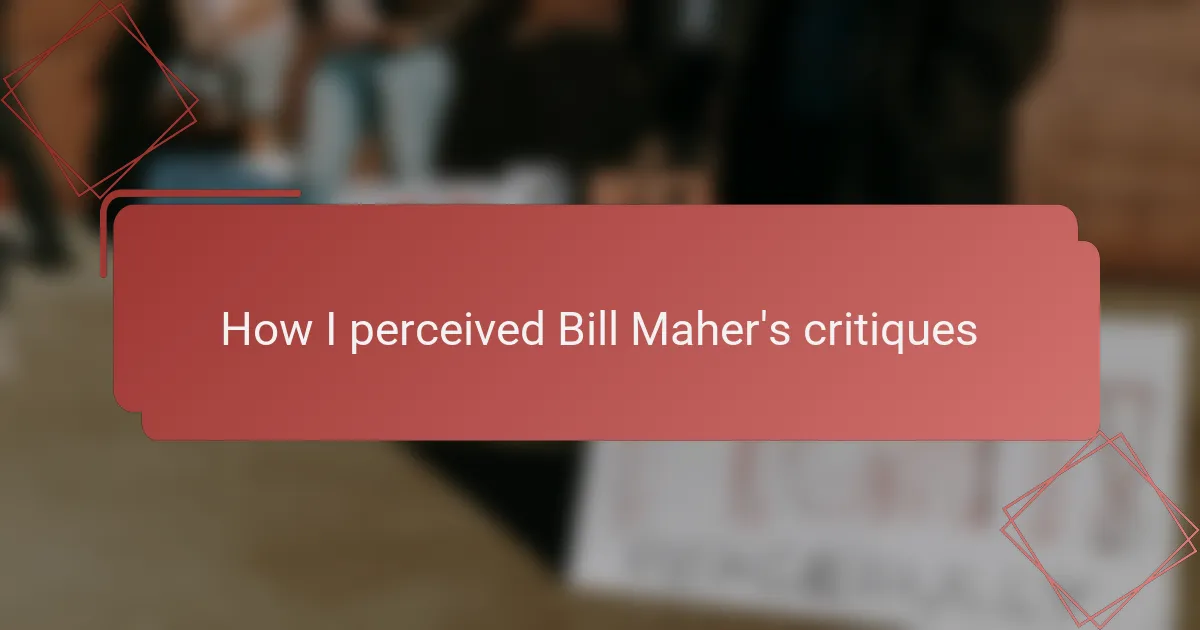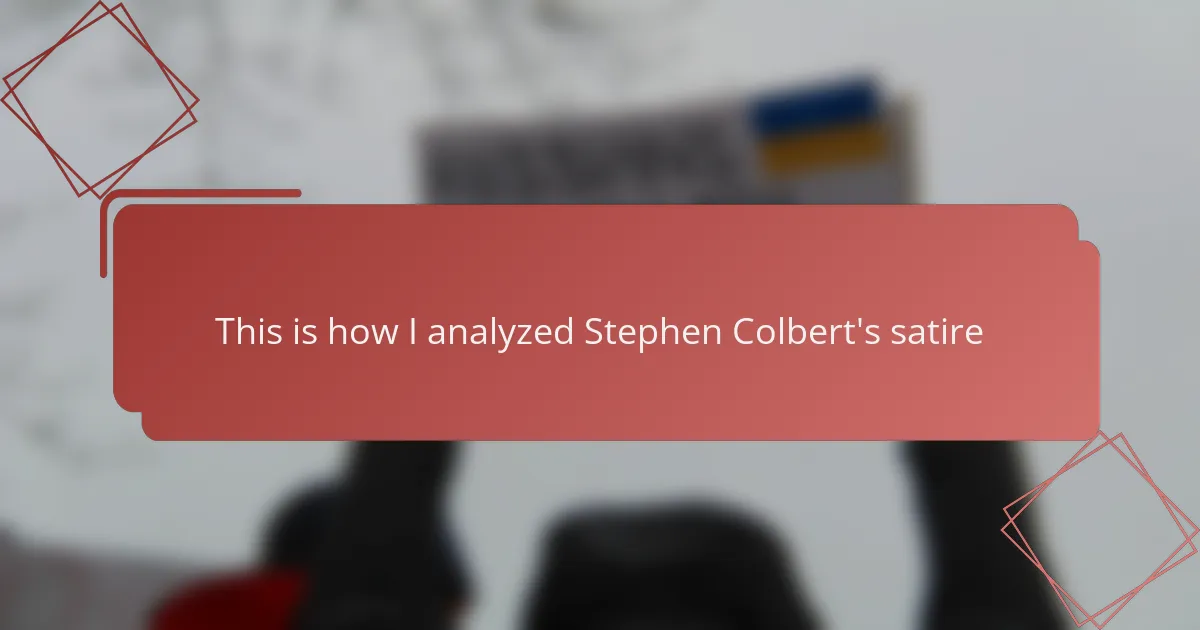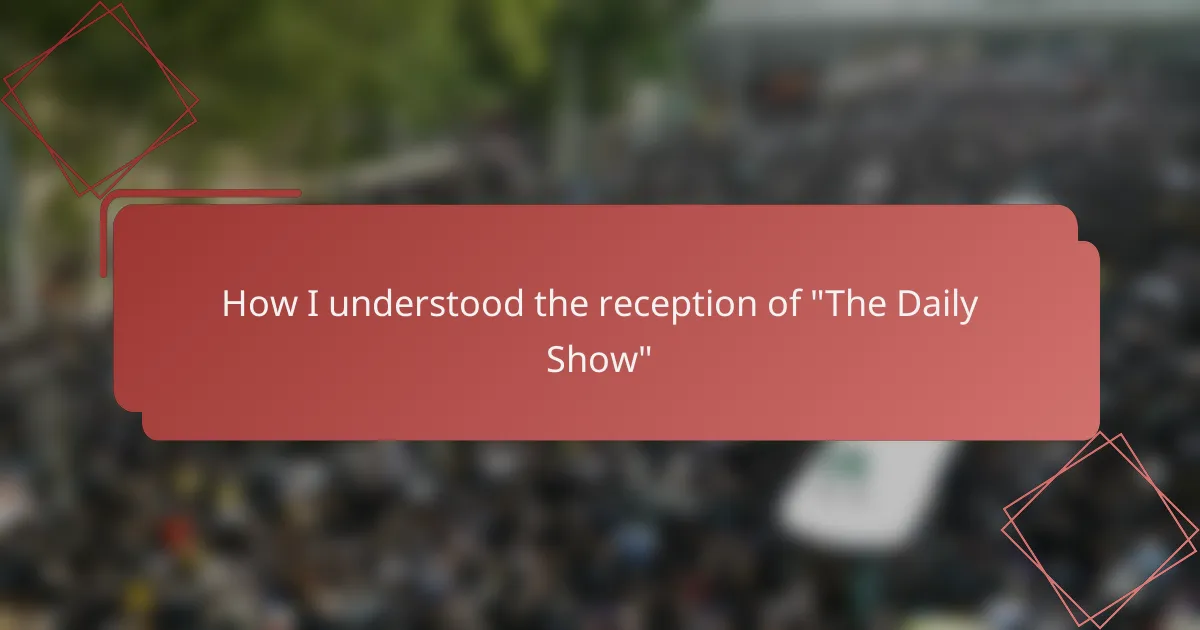Key takeaways
- Political satire holds power accountable by using humor to simplify complex issues and provoke critical thinking.
- Hasan Minhaj effectively blends personal anecdotes with political commentary, making serious topics relatable and engaging.
- His storytelling utilizes timing, irony, and relatability to foster a deeper emotional connection with the audience.
- Minhaj’s humor encourages reflection on social and political issues, promoting conversations that extend beyond laughter.
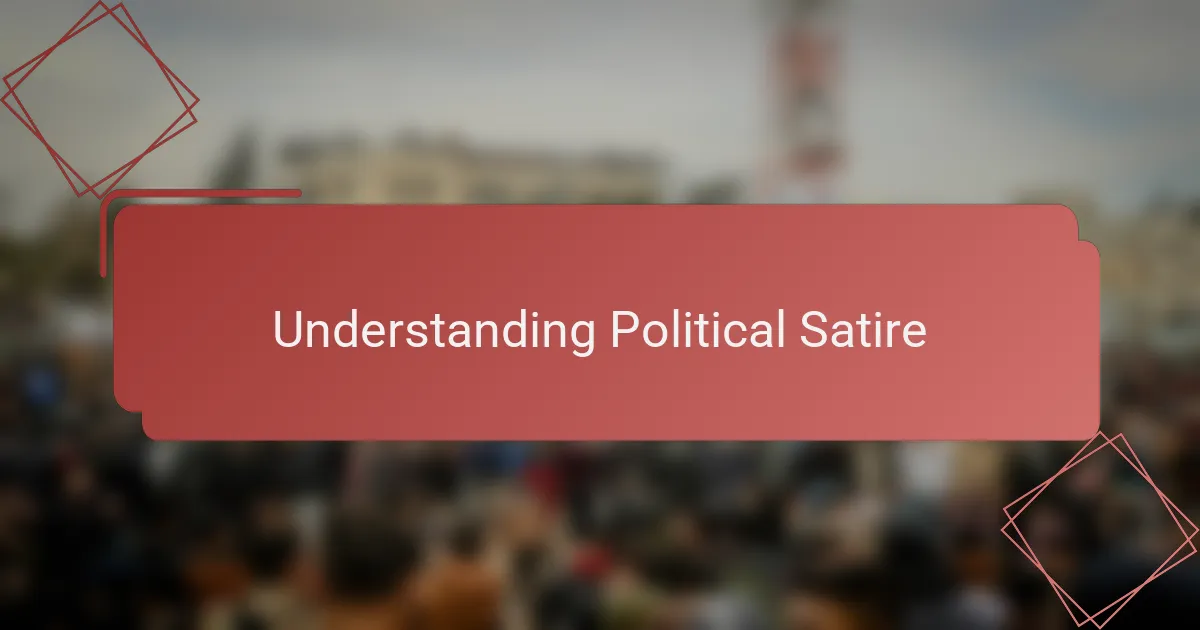
Understanding Political Satire
Political satire isn’t just about making people laugh at politicians; it’s about holding power accountable through humor. Have you ever noticed how a clever joke can make a complex political issue suddenly feel clear and relatable? That’s the magic of satire—it breaks down walls and invites us to question what we often take for granted.
From my experience, political satire walks a fine line between critique and entertainment. It demands both sharp wit and deep understanding. Sometimes, I find myself nodding in agreement or even feeling a little uncomfortable, which I think means the satire is doing its job—pushing me to think beyond my usual perspective.
Isn’t it fascinating how satire can both soften and sharpen political discourse? It delivers truths wrapped in humor, making difficult conversations more approachable. This blend of emotion and insight is what keeps me drawn to political satire time and again.
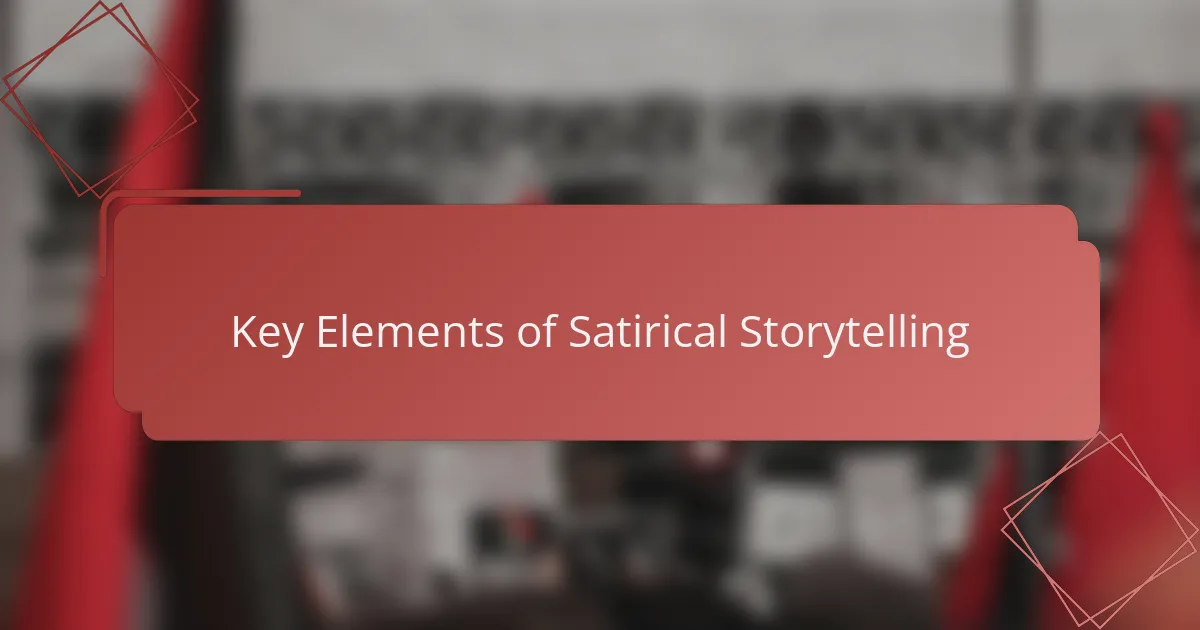
Key Elements of Satirical Storytelling
One key element I always notice in effective satirical storytelling is the use of irony. When done right, irony twists the expected and forces you to see an issue from a new angle. Have you ever caught yourself laughing first, then suddenly realizing the biting truth underneath? That moment sticks with me—it’s where satire transcends humor and becomes a powerful commentary.
Another crucial factor is timing. In my experience, delivering a punchline at just the right moment can turn a simple joke into a memorable critique. Timing helps satire avoid feeling preachy; instead, it feels like a witty nudge, prompting reflection without alienating the audience. It’s like when Hasan Minhaj pauses just before dropping a line—suddenly the entire room leans in, ready for that sharp insight.
Lastly, I think relatability plays a huge role. Satire connects when the audience sees pieces of their own reality mirrored, often exaggerated, but still recognizable. I’ve found that this connection makes the satire resonate long after the laughter fades. It’s this blend of humor and truth that keeps me hooked on Hasan Minhaj’s storytelling, as he invites us to laugh while thinking critically about the world around us.
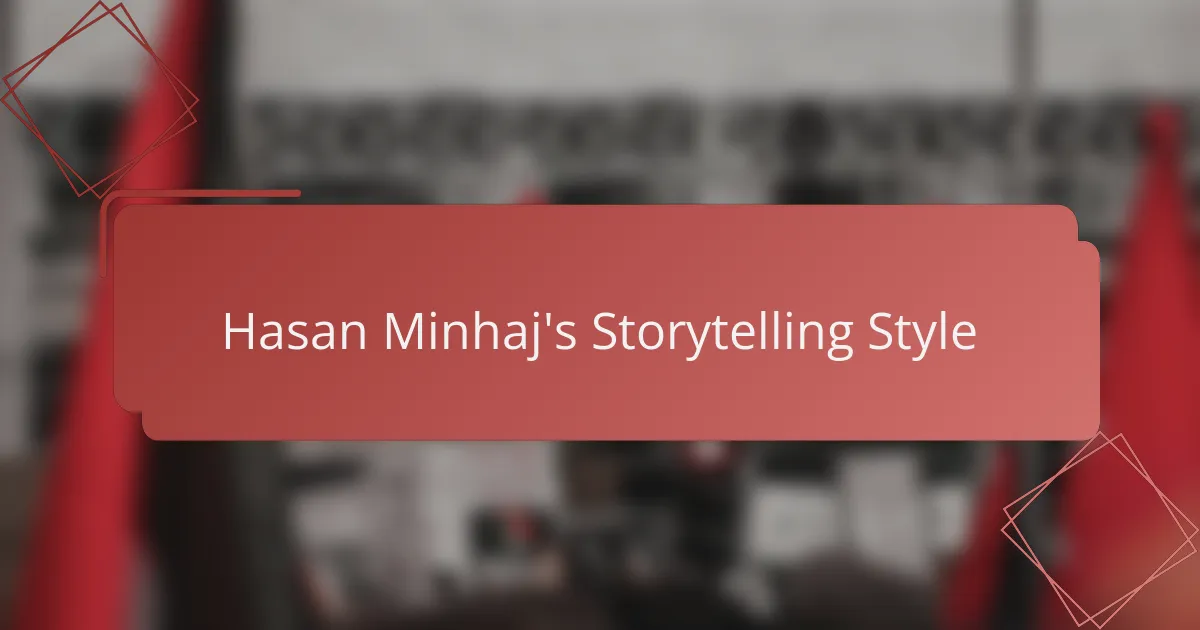
Hasan Minhaj’s Storytelling Style
Hasan Minhaj’s storytelling style truly stands out in the realm of political satire. From my experience watching his shows, I often find myself drawn not just to the punchlines but to how he weaves personal experiences into broader political contexts. This approach makes complex issues feel relatable and urgent.
What I really appreciate is his use of rhythm and pacing—he knows exactly when to pause for impact or speed up to build excitement. Here are a few key elements I’ve observed in his storytelling:
- Seamless blending of humor and serious topics, making difficult subjects approachable
- Use of personal anecdotes that create an emotional connection with the audience
- Clear, concise language that avoids jargon without dumbing down the message
- Dynamic delivery that shifts between conversational and theatrical tones
- Visual aids and storytelling devices that enhance understanding and engagement
In my opinion, this combination is why his stories resonate so deeply and stick with me long after watching.
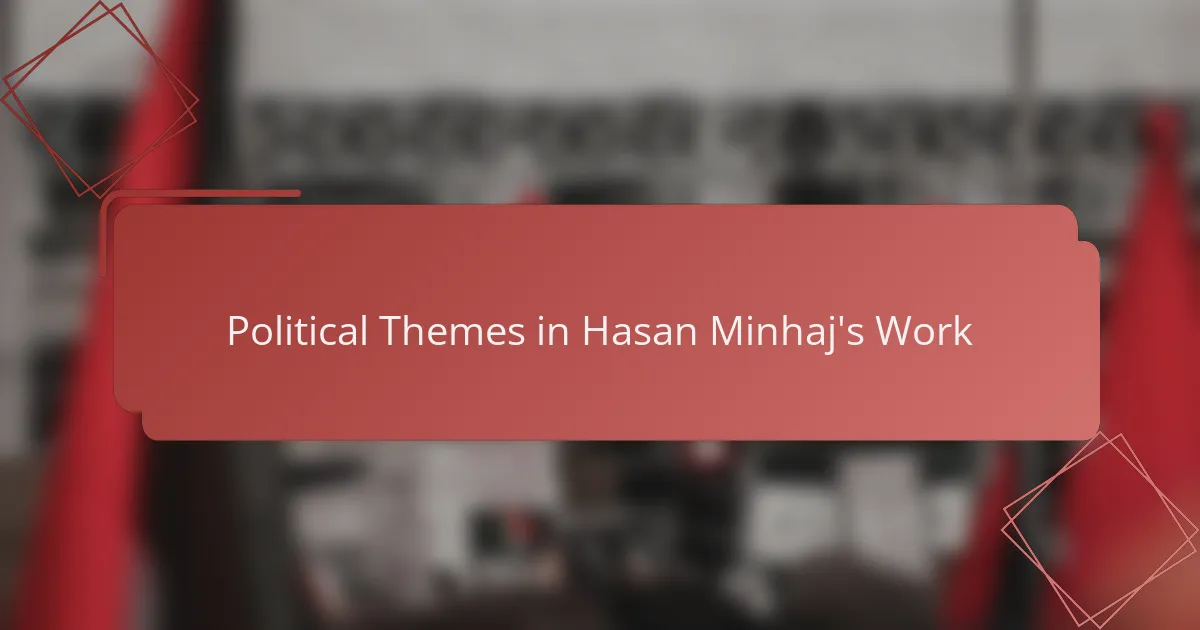
Political Themes in Hasan Minhaj’s Work
Hasan Minhaj doesn’t just touch on political themes; he dives deep into the nuances that often get overlooked. I’ve noticed how he tackles topics like immigration, racial identity, and government policies with a blend of humor and heartfelt honesty. It’s like he’s inviting us into his world, making the politics feel personal and relevant.
What strikes me most is how Minhaj balances satire with sincerity. Have you ever seen a comedian make you laugh while also making you think critically about injustice or inequality? That tension—between laughter and reflection—is something Hasan pulls off masterfully. His storytelling often leaves me processing the issues long after the show is over.
One example that sticks with me is how he addresses the immigrant experience, mixing his own story with larger political debates. This approach doesn’t just critique policies; it humanizes the people behind the headlines. In my view, that’s what makes his political satire uniquely powerful and empathetic.
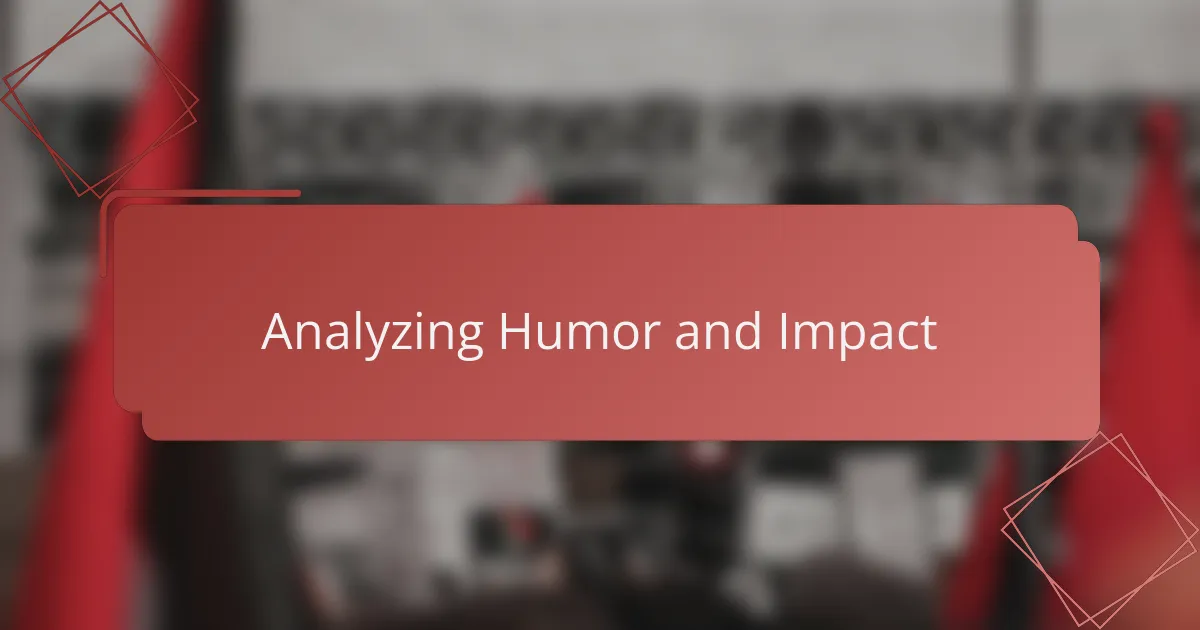
Analyzing Humor and Impact
When I think about Hasan Minhaj’s humor, what stands out is how effortlessly he balances sharp wit with emotional depth. Have you ever laughed out loud at a joke, only to realize moments later that it’s pointing to a harsh political truth? That’s the kind of humor that lingers with me—it entertains but also unsettles, urging me to reconsider my views.
The impact of his storytelling lies in this blend of comedy and candor. From my experience, Minhaj’s humor doesn’t just land for laughs; it opens the door to empathy. I often catch myself reflecting on the stories he shares long after the applause fades, wondering how many other perspectives I might be missing in the political debates we consume every day.
What really convinces me of his impact is the way he uses humor as a bridge rather than a barrier. Instead of just mocking power, he invites us into a larger conversation, making complex issues digestible without losing their weight. Has this blend of laughter and insight ever made you see a political issue in a new light? For me, that’s the true power of Hasan Minhaj’s storytelling.
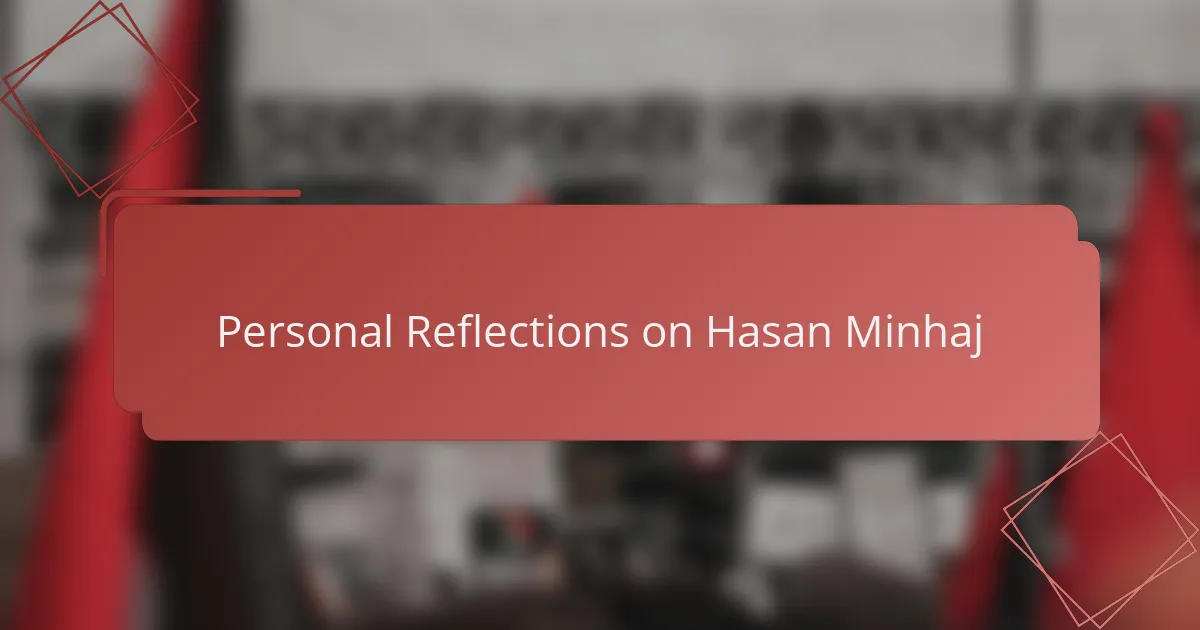
Personal Reflections on Hasan Minhaj
Hasan Minhaj’s storytelling strikes me as both bold and deeply personal, which is rare in political satire. His ability to weave humor with heartfelt narratives makes his satire not just funny but relatable. I remember watching one of his specials and feeling like I was hearing a friend’s genuine story rather than just a comedian’s routine.
What resonates most with me is how he uses his own experiences as an entry point to discuss broader political issues. This approach doesn’t just inform—it draws you in emotionally, making complex topics accessible and memorable.
- Uses personal anecdotes to humanize political themes
- Balances humor with emotional depth effectively
- Engages the audience beyond just laughter, provoking thought
- Presents a fresh perspective influenced by his cultural background
- Creates a connection that invites empathy alongside critique
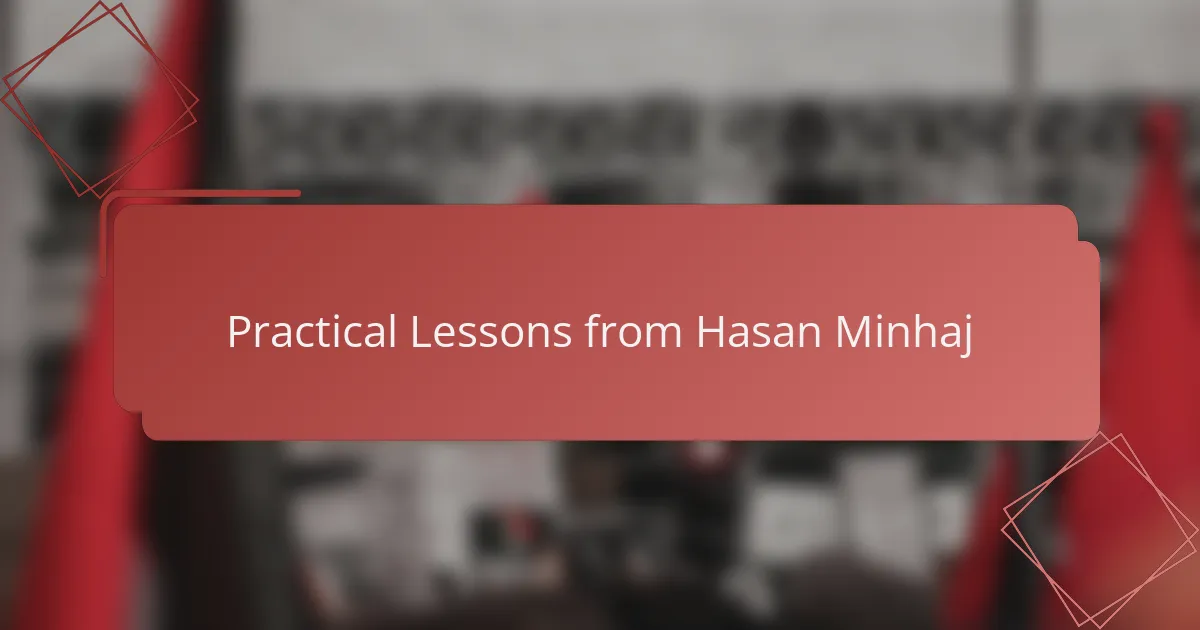
Practical Lessons from Hasan Minhaj
Practical Lessons from Hasan Minhaj
Hasan Minhaj’s storytelling taught me the power of blending humor with personal vulnerability. His ability to tackle serious political issues while maintaining an engaging narrative style shows how effective satire can be in sparking meaningful conversations. Watching his performances, I realized that honesty paired with wit creates a connection that purely factual commentary often lacks.
| Lesson | Hasan Minhaj’s Approach |
|---|---|
| Use of Humor | Balances sharp political critique with relatable comedic moments |
| Personal Storytelling | Shares firsthand experiences to humanize complex issues |
| Engagement | Keeps audiences emotionally invested through pacing and tone shifts |
| Educational Value | Breaks down political topics into accessible narratives without diluting the message |
